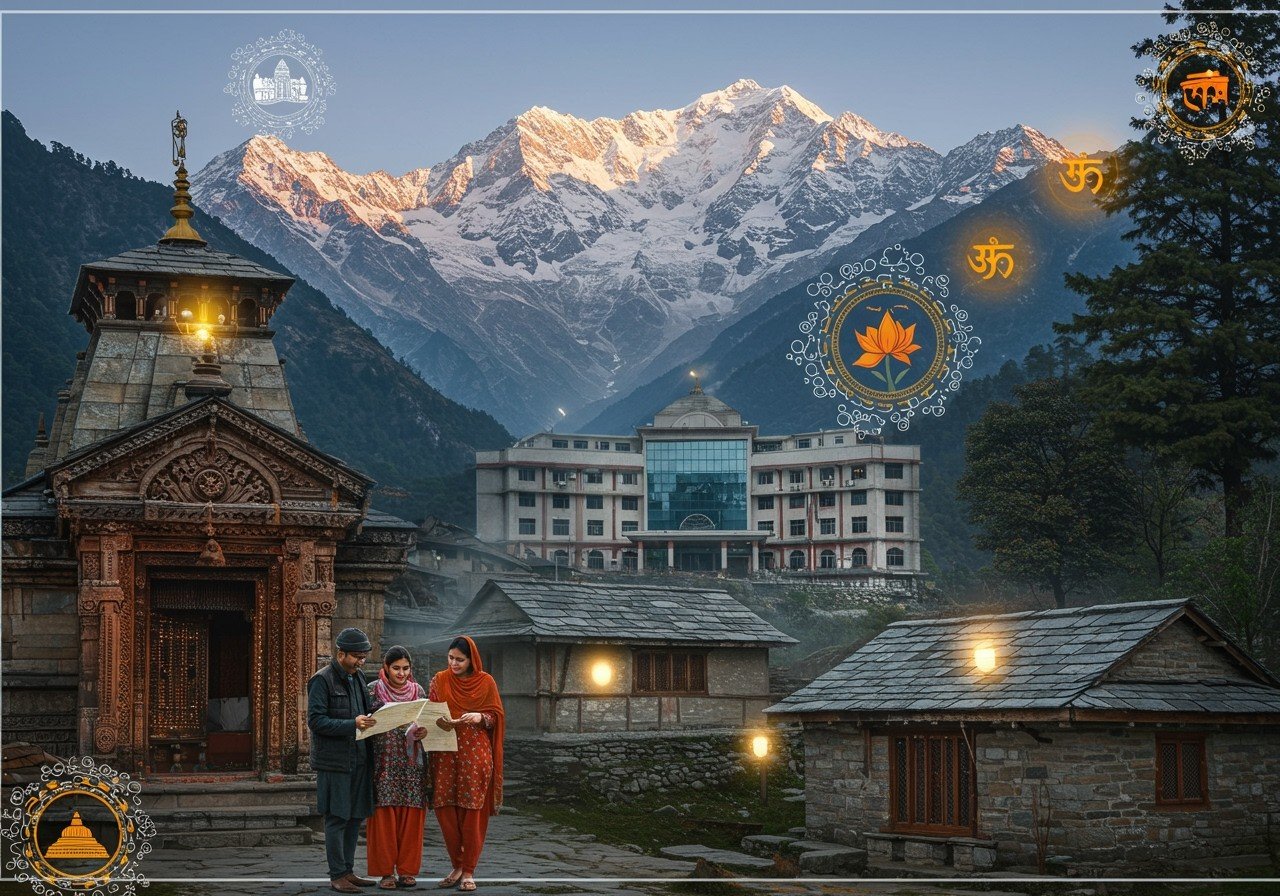
Understanding land laws and domicile certificates in Uttarakhand is essential for residents and those seeking property or residency rights. These regulations not only preserve our cultural heritage but also safeguard legal rights, enabling smooth navigation through property ownership and residency matters. Let’s explore these important aspects together.
What is Uttarakhand Bhu Kanoon?
Uttarakhand Bhu Kanoon encompasses the state’s land laws. These regulations dictate land ownership and transfer, shaping land distribution and usage across the state. They have evolved over time, reflecting the changing needs and priorities of our communities. Key aspects include:
- Restrictions on Land Purchase by Non-Residents: Protecting our land is paramount. Non-residents often face limitations on the amount of land they can purchase, ensuring local communities maintain access to land resources. This safeguards against large-scale land acquisitions that could disrupt local economies and displace communities.
- Regulations for Land Conversion: Transforming agricultural land for other uses requires adherence to specific procedures. This helps protect our valuable farmland, prevents fragmentation into smaller, less productive plots, and maintains the ecological balance of our state.
These laws aim to preserve agricultural land, prevent fragmentation, and promote sustainable land use. However, challenges persist, particularly in addressing illegal land conversions. The shift towards integrating these laws with digitized land records is a significant step towards greater transparency and efficiency in property dealings.
Uttarakhand Land Records: Embracing Digitalization
In Uttarakhand, land records are the cornerstone of transparent and accurate property transactions. The digitization of these records has revolutionized how we manage and access land information. Now, residents can easily retrieve land details online, reducing the risk of fraud and fostering greater trust in property dealings.
The Uttarakhand Land Records Management System plays a crucial role, ensuring accurate and up-to-date land data is available to all. While challenges related to accessibility and updating records still exist, continuous improvements are being made to enhance user experience and efficiency. This digital transformation empowers residents and streamlines property transactions, making the process smoother and more secure.
Understanding Uttarakhand Domicile Certificates
A domicile certificate in Uttarakhand confirms an individual’s residency status, a vital document for accessing state government schemes, educational reservations, and employment opportunities. Specific eligibility conditions must be met to obtain this certificate.
Eligibility for Domicile Certificate
- Long-term Residency: Applicants typically need to be permanent residents of Uttarakhand for a minimum of 15 years, demonstrating a deep-rooted connection to the state.
- Permanent Home in Uttarakhand with Outside Employment: Even if you live outside the state for work or other reasons but maintain a permanent home in Uttarakhand, you may still be eligible for a domicile certificate, recognizing your enduring ties to the state.
- Married Women: Women married to permanent residents of Uttarakhand are also eligible for domicile certificates, acknowledging their integration into the state’s social fabric.
Required Documents for Domicile Certificate
- Proof of Address: This can include documents like a Ration card, Aadhaar card, driving license, passport, electricity bill, or water bill. Submitting any one of these establishes your residential address in the state.
- Voter’s ID and Birth/School Leaving Certificate: A copy of your Voter’s ID card, along with your birth certificate or school leaving certificate, helps confirm your identity and connection to Uttarakhand.
- Property and Residency Documentation: Provide property tax receipts, land deeds, a copy of the Parivar Register certified by the Gram Pradhan or ward member, and educational certificates (high school or intermediate) to demonstrate your long-term residency in the state. Include a land registry copy as evidence of 15 years of residence, further solidifying your claim.
Applying for a Domicile Certificate
- Applying through CSC or Government Offices: Applications can be made through Common Service Centres (CSCs) or directly at government offices such as the Sub-Divisional Magistrate/Tehsildar Office/Revenue Department/District Collector Office, offering convenient options for residents.
- Online Application via Apuni Sarkar: Uttarakhand residents can leverage technology and apply online through the Apuni Sarkar website, simplifying the process and making it more accessible. Get the application form from the Tehsildar, Revenue Office, or District Magistrate’s office, fill it out completely, attach the required documents, and submit it to the designated office.
- Verification and Issuance: The certificate is typically issued within 7 to 15 days after document verification. This timeframe allows authorities to thoroughly review the application and ensure accuracy.
The domicile certificate serves as a crucial document for various purposes, including securing state government jobs, gaining admission to colleges under the state quota, and accessing other government benefits. It strengthens your connection to Uttarakhand, unlocking opportunities for growth and development.
Impact of Land Laws and Domicile Certificates on Residents
Uttarakhand’s land laws and domicile certificates significantly impact the lives of its residents. These regulations shape property rights, influence social mobility, and contribute to the preservation of cultural and traditional practices by regulating land use and residency. Economically, they can attract investment and promote sustainable development across the state. Local community feedback highlights the importance of these frameworks in protecting rights and promoting fairness. Continuous efforts are underway to ensure that these laws and certificates remain relevant and serve the needs of the people of Uttarakhand effectively.
How Poojn.in Supports You
At Poojn.in, we understand the significance of these legal processes and want to help you navigate them smoothly. We provide guidance and support for Uttarakhand residents dealing with land laws and domicile certification. Our services include document verification assistance, updates on land laws, and expert advice on property documentation. For NRIs, we offer specialized support in navigating property matters.
We also offer a wide range of sacred puja items, Bhoj Patra, puja oil and holy cosmetics to bring blessings and positive energy to your property matters.
*Disclaimer: Poojn.in provides general guidance and ritual materials. For specific legal advice, consult qualified legal professionals.*
Conclusion
Uttarakhand’s land laws and domicile certificates are foundational to property rights and social identity within the state. Embracing technology while honoring traditional values is key as we move forward. The digitization of land records and streamlined processes for obtaining domicile certificates are positive strides, offering convenience and transparency. These initiatives promote trust and fairness, ensuring all residents can claim their heritage and access the opportunities they deserve. While challenges remain, the ongoing efforts to improve accessibility and efficiency demonstrate the state’s commitment to its people. By understanding and engaging with these systems, residents strengthen their bond with Uttarakhand, paving the way for a secure and prosperous future.
FAQs: Uttarakhand Land Laws and Domicile Certificates
What is Uttarakhand bhu kanoon? Uttarakhand bhu kanoon refers to the comprehensive set of land laws governing the state. These regulations manage all aspects of land transactions, including buying, selling, and usage, ensuring legality and fairness while protecting the rights of all parties involved.
How can I check Uttarakhand land records online? Access Uttarakhand land records online through the official government website designated for this purpose. You’ll need specific information such as the district, tehsil, and village name to access the relevant records. This online system facilitates easy access to crucial land information.
What documents are required for a domicile certificate in Uttarakhand? Obtaining a domicile certificate in Uttarakhand requires proof of residence, such as a Voter ID, Aadhaar card, or utility bills. Additionally, you might need a birth certificate or educational certificates to establish your connection to the state, strengthening your application. These documents collectively validate your residency claim.
How long does it take to get a domicile certificate in Uttarakhand? Acquiring a domicile certificate usually takes 15-30 days. This depends on factors such as the local authorities’ workload and the completeness of your documentation. Timely submission of all required documents ensures a smoother and quicker process.
Can non-residents buy land in Uttarakhand? Yes, non-residents can purchase land in Uttarakhand, subject to certain restrictions. They are generally limited to a maximum area, typically 250 square meters for residential purposes, unless specific permissions are granted. These regulations aim to protect local communities and their access to land resources.
Why is a domicile certificate important in Uttarakhand? A domicile certificate is essential for accessing various opportunities and benefits within Uttarakhand. It is required for educational institution admissions, job applications, and eligibility for state benefits and schemes. This crucial document validates your residency status and opens doors to numerous opportunities.
What are the steps to apply for a domicile certificate in Uttarakhand? To apply for a domicile certificate, go to the nearest Tehsil or Sub-Divisional Magistrate’s office. Fill out the application form meticulously, attach all necessary documents, and submit it for processing. Keep the application receipt for future reference. Following these steps diligently ensures a smooth and successful application process.


